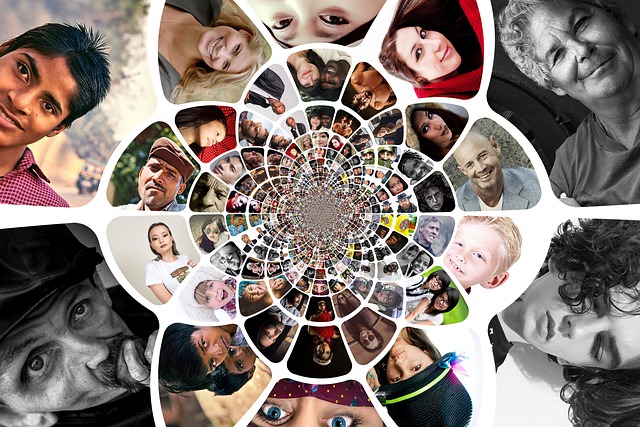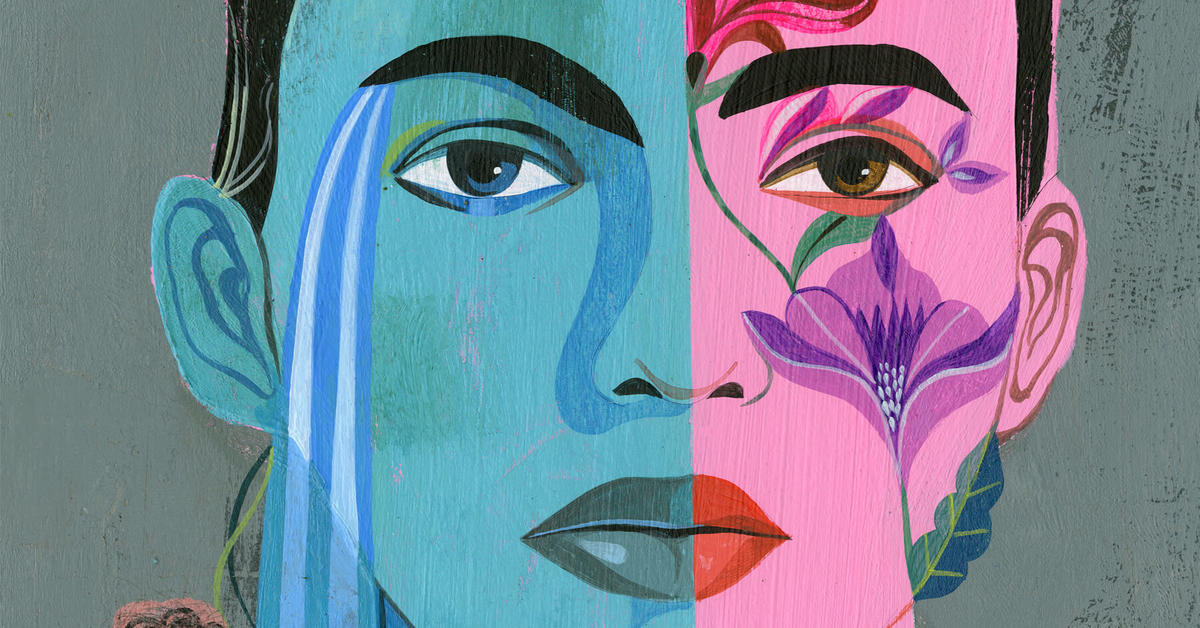In May I posted the Delicate Intricacies of Sex and Gender, noting some of the latest findings in science relevant to the cultural disputes dealing with sex and gender. I concluded that our cultural precepts about gender need to change. Needless to say, that is a huge challenge. Historically, one of the key drivers of cultural practices and mores has been religion. In the gender conversation, religion has almost always been in the binary camp (at least in modern times): Man and woman were created by God and their sexual identity is fixed for all time. Anything else is sin. Hopefully this is changing. While there continue to be many religious voices holding to this rigid dogma, there are alternatives as well. A recent meditation by Richard Rohr on Diversity and Communion offers quite a different view on gender alternatives.

Gender as Diversity
The Center for Action and Contemplation (CAC) is a monastery founded by Richard Rohr, a Catholic Priest and Franciscan friar, in Albuquerque, New Mexico. He has been called (on PBS) “one of the most popular spirituality authors and speakers in the world.”
This October, Rohr turned his attention to the question of sex and gender for one week in his daily meditation series. I found the meditation on Diversity and Communion particularly interesting. The meditation opens with the following:
“God is clearly more comfortable with diversity than we are, and God’s final goal and objective are much simpler. God and the entire cosmos are about two things: differentiation (people and things becoming themselves) and communion (living in supportive coexistence). Physicists and biologists seem to know this better than theologians and clergy.”
He then goes on to contrast the way religious authority tends to treat people as simple, in need of specific and firm moral parameters, while the teachings of Jesus focus not on control but on freedom:
“Jesus’ approach takes the risk of allowing people the freedom to be themselves and to love God according to the shape of their own heart, soul, body, and mind! Religion developed for the sake of social control, but Jesus does not give us much grist for the social control mill. For Jesus, it is all about union—union with God, others, and what is, however it presents itself.”
These ideas, through his highly religious lens, echo the conclusions I reached in the Delicate Intricacies of Sex and Gender:
“So, is sex binary, or a continuum? The answer is — both. Sexuality is usually genetically binary, but variations occur naturally at the genetic, epigenetic and functional levels. Given individuals will experience sexual development and sexual identity in a wide variety of ways. This is the way human biology works, not a question of choice, weakness, “acting out”, or sin. While there are genetic and functional norms that largely reflect binary characteristics, the naturally occurring variations are diverse and plentiful in a population of 7.5 Billion. These naturally occurring variations should be accepted and welcomed within the human community.”
Rohr’s meditation ends with a very nice summary on both trains of thought:
“Jesus, like the cosmos itself, constantly affirms two parallel drives toward diversity and toward communion. The whole of creation cannot be lying.”
Gender and Social Control
In the quote above, Rohr makes the statement: “Religion developed for the sake of social control.” This is an often repeated, and I believe quite simplistic, trope, usually offered in condemnation of organized religion. I think it is more accurate to say that spiritual traditions have always been part of our human experience, but they have often been borrowed, co-opted, or outright stolen, to serve the interests of the dominant power structure. The unifying religious dogmas that arose, as spiritual teachings were bent to the will of the conquerors, did facilitate the broad spans of social control that were necessary for the administration of kingdoms and empires.
It is instructive to think about sex with a similar lens. Sex is arguably the most powerful of the biological drives we are born with, and it is fundamental to our human experience. So it should not be surprising, then, that like our spiritual impulses, our sexual impulses have often been borrowed, co-opted or stolen to serve the interests of the dominant power structure. Succession within kingdoms and empires is generally determined by heredity – a direct manifestation of social control through sex (procreation).
Those ruling institutions were also, for the most part, patriarchal, reflecting domination of one sex by the other. Male leaders were free to choose, and abuse, their sexual partners. Genghis Kahn is reported to have fathered many thousands. Colonization and expansion were often accomplished by slaughter, slavery and sexual subordination, often with the patina of religious authority.

Sex and religion are both, clearly, powerful human drives, and they have sometimes worked together to promote cultural practices that are antithetical to any concept of human freedom, equality and love. As Rohr points out
“The arguments of homophobic or anti-gay folks might seem well-supported, but …. generally have to do with very secular concerns: control over chaos, majority rule, fear of the other, fear of the unknown, and idealization of a family unit that Jesus himself neither lived nor idealized.”
“Do not let the labels trip you up—woman, man, transgender, cisgender, straight, bisexual, gay, queer. We all belong, but how cleverly our moral pretenses prevent us from struggling with what is right in front of us! How ingeniously our ego protects itself from compassion and understanding.”
Conclusion
Our primary sexual impulse is a drive towards physical connection with another. In a consensual and loving relationship, this joining is one of the most beautiful and profound experiences in life. However, in the context of self-gratification, or the exercise of power and domination of another person, the sexual impulse produces horrific consequences.
Our spiritual and religious impulses are also about connection. In this case the impulse can be for connection with other people, with creation or with the Divine itself. This connection can be at the physical level, like the comfort of being with a loved one or the delight of seeing nature’s beauty. But it also works at a more universal level: The sharing of love, joy and gratitude with those we love; The experience of wonder and appreciation for the immensity and complexity of creation; The gratitude and grace of being in relation with an infinite, loving God. However, if loving-kindness is missing from the equation, and domination, control and power are the true intentions, then the consequences are evil, and these relationships filled with fear, vengeance, anger and abuse.
I’m encouraged by what the continuing advances of science are telling us about the intricacies of human sex and gender. Science is leading us towards greater understanding and acceptance of the diversity of sexuality in humans and in biology, generally, and an honoring of these differences.
I am also encouraged by what I hope is a growing recognition in religious teachings of the intricacies of human sex and gender. These teachings can lead us towards a greater love and acceptance of the varieties of human experience of sexuality, and an embracing of these varieties with loving-kindness.
Science and religion, working together, can exert the appropriate influence to change our culture and the trajectory of our civilization. The world can become a better and more loving place.
As Rohr puts it:
“Teacher, which commandment in the Law is the greatest?” He replied to him, “‘You are to love the Lord your God with all your heart and all your soul and all your mind.’ This is the first and foremost, and the second is like it: ‘You are to love your neighbor as yourself.’ On these two commandments hangs everything in the Law and in the Prophets” (Matthew 22:35-40).
Epilogue:
Understanding, of course, does not actually solve any problems. Changing our culture will require action to bring our practices into alignment with our understanding. This places an obligation on all of us. We need to speak up when we hear something wrong and to stand up when we see something that needs to be changed. Moreover, on the issue of sexual abuse and gender equality, I have said before I believe this obligation weighs more heavily on men. See: Transforming the Masculine Culture.

















